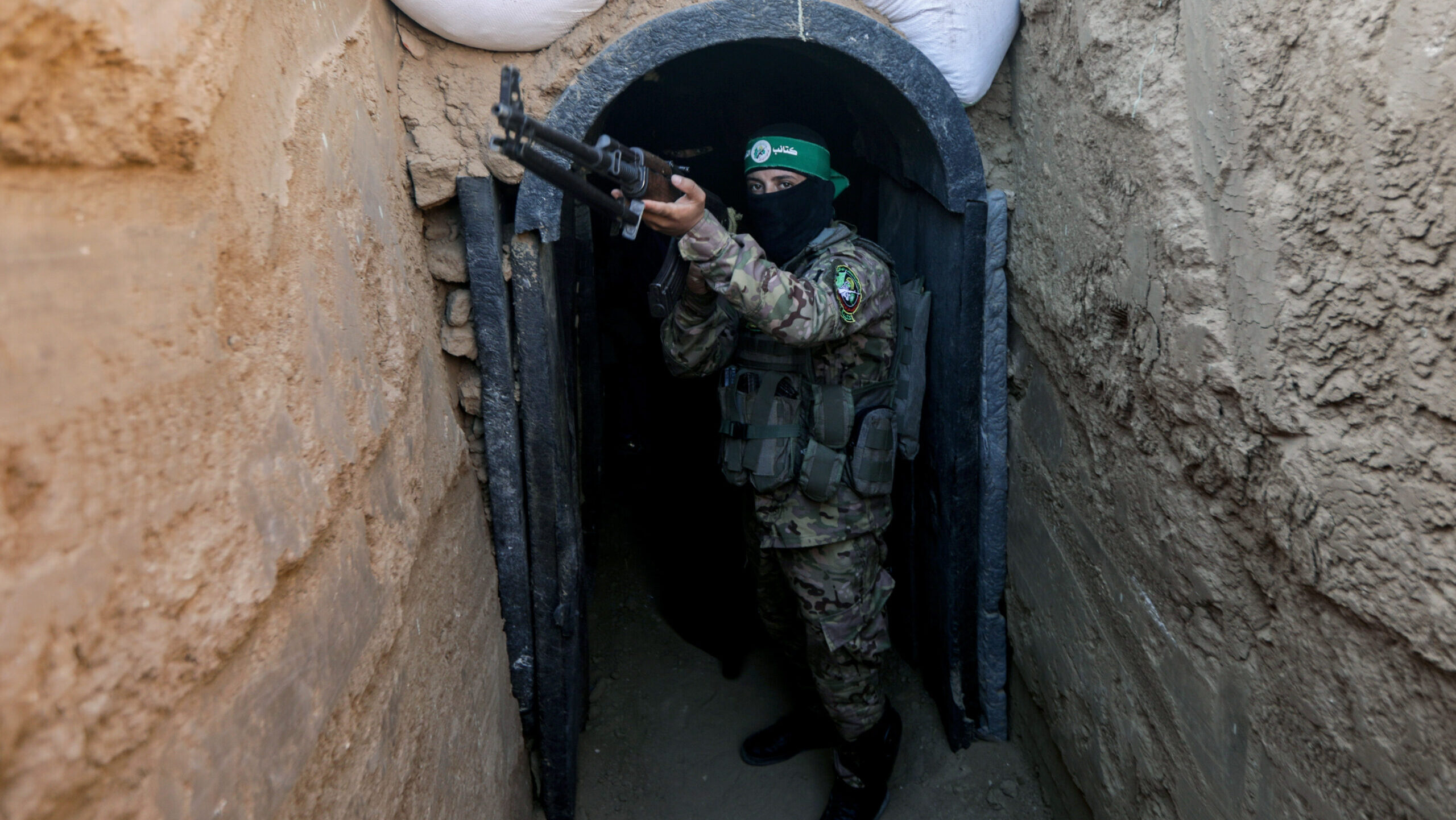The Dangers of Gaza to Arab Countries
Asharq Al-Awsat, London, Nov. 19
Hamas is not the sole participant in the struggle for survival. Similarly, Israel is not alone in its attempt to overcome humiliation and reclaim its standing. In fact, the entire region is on the brink of an explosive event, with Gaza serving as the catalyst. As we confront the crisis in Gaza, a question arises: Should we simply follow the current momentum and popular opinions, or should we ignore them? Before addressing this, it is necessary to understand the roots of extremism and its connection to war. In essence, wars serve as the breeding ground for radical factions. The American war against al-Qaida in Afghanistan in 2001 ushered in a dangerous era of extremism, spreading like a virus throughout the mosques, homes, and schools of countries in the region. This troubling trend only intensified with the 2003 US invasion of Iraq. In a swift three weeks, Saddam Hussein’s forces crumbled, and Baghdad fell into the hands of US occupiers. However, as the battle dragged on, the extremist rhetoric proved to be a powerful magnet, drawing in thousands of young Arabs to fight under the banners of al-Qaida and later, Islamic State, in the Syrian conflict. This shift in allegiance altered the trajectory of the war, ultimately leading to the withdrawal of American forces and the rise of Iran’s influence. The spread of extremist organizations was not contained to Iraq alone; their reach extended to over half of the Arab world between 2003 and 2010, wreaking havoc and destruction. Action must be taken to counter this alarming and destabilizing trend before it engulfs even more innocent lives. The Arab Spring, hailed as a catalyst for change, ultimately failed. However, this movement, which erupted in 2011, is merely an extension of previous uprisings led by local leaders and under different banners of protest in countries such as Tunisia, Egypt, and Yemen. Syria, which served as a breeding ground for extremist groups, was also not spared from this upheaval. The recent Gaza crisis is just one battle in an ongoing war in the Middle East. The recent battles in northern Gaza have brought immense tragedy, but amid the turmoil, we must not lose sight of the larger picture unfolding in Arab societies. A common thread among past and present wars is the use of conflict by certain factions to weaken and manipulate governments and regional powers. These relentless forces, having faced defeat in Iraq, Syria, Libya, and Egypt, are now resurfacing. In response, each country has its own approach to handling the crisis. Saudi Arabia has taken a firm stance, standing in solidarity with Gaza and condemning the Israeli aggression. Diplomatic efforts have been spearheaded by the kingdom, including hosting crucial summits and conferences with Arab, Islamic, and African leaders. Additionally, generous donations exceeding half a billion riyals have been raised, setting a precedent for the region. Notably, extremist ideologies and propaganda that once thrived in schools, mosques, forums, and local media seem to have dwindled. This shift is a testament to the progress made in countering radicalization and curbing the recruitment of impressionable youths. Calls for jihad and appeals to join extremist groups have become rare occurrences. Some governments have chosen a different path, countering the proponents of incendiary language in the hopes of quelling tension and gaining popularity from the masses. However, I believe this is a mistake that only perpetuates the issue. As extremist voices grow louder, governments struggle to keep up with their demands to sever ties with Western countries, restrict imports, and incite violence. History has shown us that they will even turn on their own governments, far beyond the Gaza conflict. Showing support for the people of Gaza should not involve promoting extreme rhetoric, launching advocacy campaigns, or granting a platform for radical views in religious, educational, or media spaces. It is concerning to see how the organizations responsible for spreading extremist propaganda have become increasingly organized and proficient. Their reach has now surpassed what we previously observed during the tumultuous 2011 revolutions. In the ongoing conflict in Gaza, these extremists are using symbols and ideologies to sell their agenda: figures like Abu Obaida, bin Laden, Nasrallah, and dates like October 7. To them, Gaza is not a central issue, but rather a battleground, much like Fallujah in Iraq. Unfortunately, the fate of Gaza will likely mirror that of Fallujah: destruction and oblivion, leaving its people to face an uncertain future. The Israeli actions in Gaza are undeniably reprehensible, a brutal display of revenge that targets innocent civilians. Not only does this fuel extremist rhetoric but it also amplifies their influence among the public. —Abdulrahman Al-Rashed (translated by Asaf Zilberfarb)
This holiday season, give to:
Truth and understanding
The Media Line's intrepid correspondents are in Israel, Gaza, Lebanon, Syria and Pakistan providing first-person reporting.
They all said they cover it.
We see it.
We report with just one agenda: the truth.



